By Dr. Jonathan Blandford
After the positive response to last issue’s piece on Poe, I thought I would try my hand at a second series of recommendations—this time on crime literature. Most of my
published scholarship is on U.S. crime literature, and every couple of years or so I teach a seminar on the topic.
As I emphasize with my students, Americans’ appetite for narratives of crime and punishment is evident everywhere: in the police procedurals that have long dominated TV, in the mass-market paperbacks featured prominently
on Amazon bestseller lists, and in the success of countless true-crime podcasts and documentaries. This is not a contemporary fad, however. As early as 1675, with the publication of Increase Mather’s The
Wicked Man’s Portion, an American public of authors and readers has interrogated its collective identity, its notions of right and wrong, and the justice of its institutions by investigating the lives of the criminals in its midst.
More recently, I’ve ventured beyond the usual suspects and have been reading lots of contemporary international crime fiction. There’s a great deal I haven’t read, of course, so
the following list is nowhere near comprehensive, but I think these books are well worth your time. And before you ask, while you should definitely feel guilty if you are out there committing crimes, you needn’t feel
guilty for reading about them.
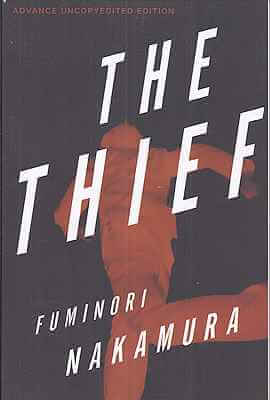 The Thief, Fuminori Nakamura (Japan)
The Thief, Fuminori Nakamura (Japan)
Literary critics and book reviewers throw the adjectives “Kafkaesque” and “Dostoevskyian” around too much. Let’s face it, a lot of books are weird and depressing but also not very good. But I’d argue that
both of those terms describe this Japanese novel about a pickpocket in Tokyo who befriends a young boy he tries to steer away from a life of crime while himself getting pulled ever deeper into a shadowy criminal underground. A lyrical, kind of
sad and very human narrative about agency, chance and urban alienation, this probably resonated with me in part because I read it early during the pandemic when I was scrupulously avoiding crowds. It’s hard to have your
pocket picked when you are standing six feet away from everyone, but it’s easy under those circumstances to imagine what it’s like to feel isolated even in a big city.
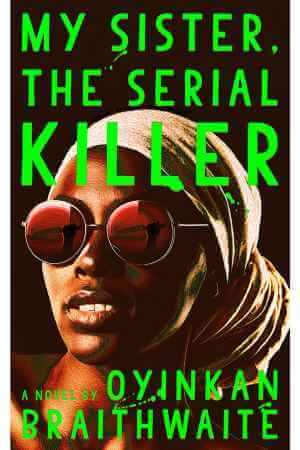 My Sister, the Serial Killer, Oyinkan Braithwaite (Nigeria)
My Sister, the Serial Killer, Oyinkan Braithwaite (Nigeria)
Have you ever known a pair of siblings where the more responsible one is always fixing the other’s problems? Of course you have. Was one of them always cleaning up after her sister’s habit of murdering her boyfriends?
That seems less likely, but if you answered yes, please stop reading this article now and inform the proper authorities. I’ll wait here. If you answered no, you can start on this Nigerian novel, which is as lurid and
fun as the title suggests and also, more subtly, a smart commentary on issues of gender and power. It zips along—most of its chapters are no more than 3 pages long—so you can finish it in a night
or two.
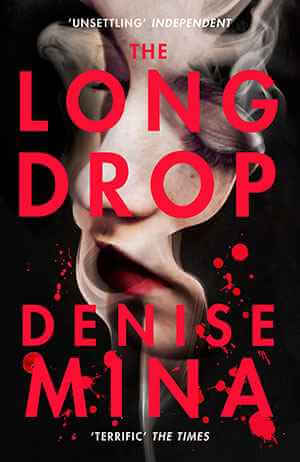 The Long Drop, Denise Mina (Scotland)
The Long Drop, Denise Mina (Scotland)
One of true crime’s most durable generic conventions is its promise to offer readers the fullest, most accurate account of whatever crime and criminal is being spotlighted. Whether it’s Ann Rule describing her friendship
with Ted Bundy in The Stranger Beside Me or Truman Capote’s sympathetic portrait of Perry Smith in In Cold Blood, this promise is often predicated on the author’s proximity to
the subject. The author knows the full truth of the true crime, this logic goes, because the author had firsthand access to the criminal. This brilliant Scottish novel turns that convention on its head. With
half of the novel focused on the trial of a suspected serial murderer and the other half on the nightlong bar crawl of said suspected murderer and athe man whose family he allegedly murdered, Mina’s
deft fictionalization of one of Scotland’s most notorious crimes exposes how proximity to criminals can actually make the stories we tell about them unreliable. It’s a rare work of true
crime that implicates itself, and by the time you get to the reveal at the end, you’ll feel a little implicated, too (but also happy that you read it, because it is great).
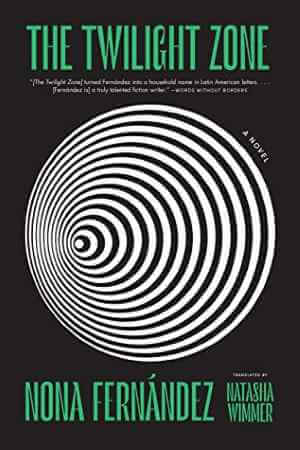 The Twilight Zone, Nona Fernández (Chile)
The Twilight Zone, Nona Fernández (Chile)
While the obvious choice for a Chilean work of crime fiction would be Roberto Bolaño’s 2666, that is one of those giant doorstops of a novel that may or may not deserve the month of your life it takes to plow
through it. Instead, I’m going with Fernández’s The Twilight Zone, which uses the eponymous 1970s TV show as a conceit for what it was like to live in Chile under Augusto Pinochet, when
countless people “disappeared” and everyone else had to pretend things were OK or risk being disappeared themselves. This is a haunting reckoning with the crimes of a brutal regime and the complicity
of everyday people in maintaining the illusion of normalcy that makes those crimes possible.
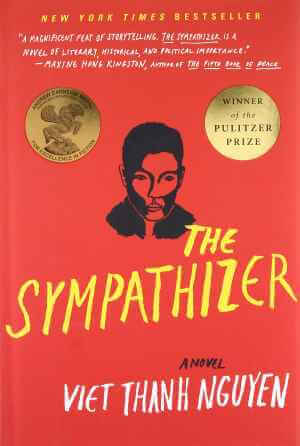 The Sympathizer, Viet Thanh Nguyen (Vietnam + U.S.)
The Sympathizer, Viet Thanh Nguyen (Vietnam + U.S.)
My wife and I watched every season of The Americans during the first few months of the pandemic, so I was primed for another tale of espionage when I finally got around to reading this extraordinary, Pulitzer Prize-winning
debut novel from Vietnamese-American writer Viet Thanh Nguyen. The Sympathizer is structured as the confession of a North Vietnamese spy in South Vietnam who moves to the U.S. after the fall of Saigon. I’ll confess
that I didn’t exactly love the turn into modernist interiority this novel takes toward its conclusion, but the rest of it is riveting stuff—funny, smart and compulsively readable. Nguyen offers a fascinating depiction
of what it means to be of and from (and thus able to “sympathize” with) more than one culture and also of who has the power to represent others’ experience. The satire of Francis Ford Coppola’s Apocalypse
Now is especially hilarious.
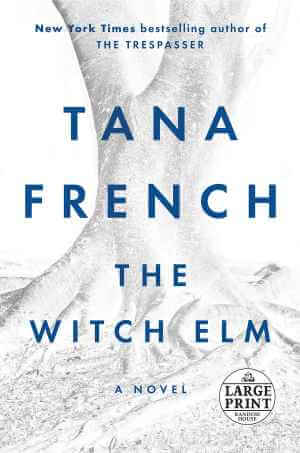 The Witch Elm, Tana French (Ireland)
The Witch Elm, Tana French (Ireland)
Although this Irish novelist rose to fame on the strength of her Dublin Murder Squad series, I think this standalone novel is her best. A kind of anti-detective story, it features a first-person narrator whose charmed
life is violently interrupted when he is attacked in his apartment by two unknown assailants. His mind clouded by his injuries, he convalesces in the family home where he spent summers as a kid, only to stumble upon a
second mystery in the form of a human skeleton in the hollow of the titular elm tree. His attempts to solve these two mysteries lead him into an increasingly uncomfortable investigation of his own past, ultimately
revealing the extent to which who we are, the privileges we enjoy, and how we are seen by others can limit our ability to see what is really happening around us. Essential reading, and easily among my favorite crime
novels of the last five years or so.
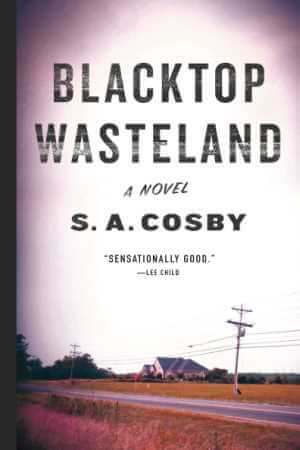 Blacktop Wasteland, S.A. Cosby, and The Nickel Boys, Colson Whitehead (U.S.)
Blacktop Wasteland, S.A. Cosby, and The Nickel Boys, Colson Whitehead (U.S.)
I’m cheating and concluding with two recent U.S. novels that engage our national conversations about race and justice. Cosby’s novel is about a getaway driver whose attempt to go straight takes an unexpected
detour. You can read this for its insights into the obstacles to getting ahead in the contemporary Black South, or you can turn your brain off and enjoy all the awesome descriptions of car chases. The novel gets so violent
(and the big bad guy comes back so many times) toward the conclusion that I started to feel like I was reading the script to some lost Die Hard sequel. The Nickel Boys isn’t strictly a crime novel,
but it tells the story of a reform school that is basically a prison, so it counts. Indeed, next to Don Carpenter’s Hard Rain Falling, I think this may be the best U.S. novel about prison that
I have ever read, and its particular focus on the racial disparities in our justice system makes it timely and urgent. Like The Sympathizer, it won the Pulitzer Prize, so you may have read it already, but
if you haven’t you really need to.
Dr. Jon Blandford, an associate professor of English, is director of Bellarmine’s Honors Program, president of the Kentucky Honors Roundtable and secretary of the Southern Regional Honors Council.